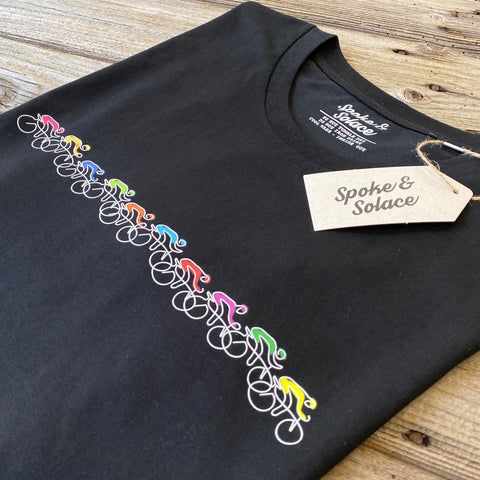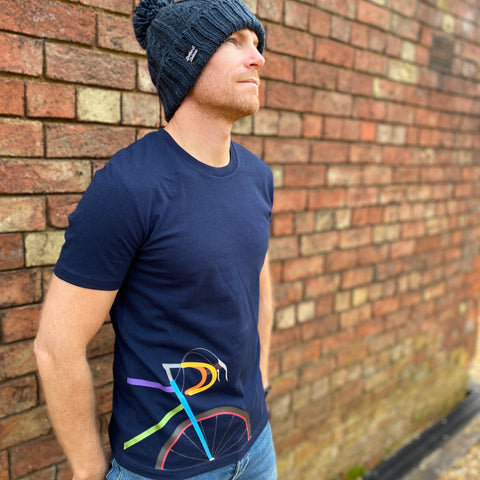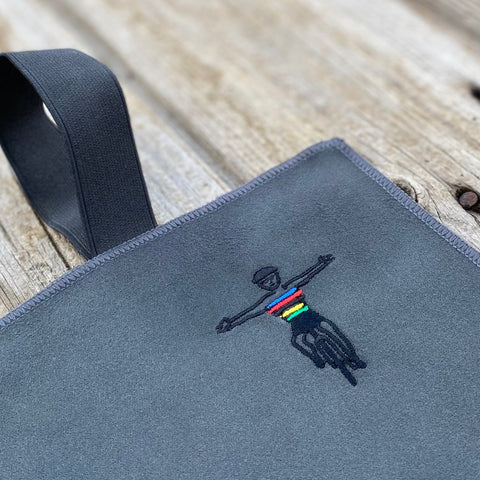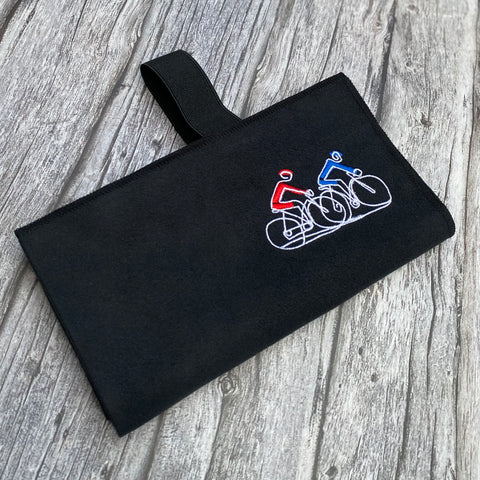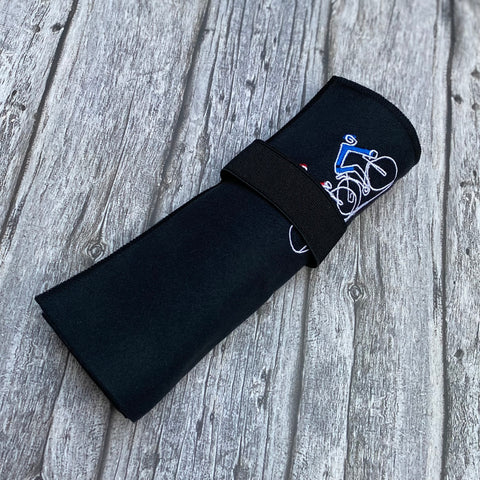
Cycling for mental health
It’s mental health awareness week this week and never has this been a better time to be more open about the subject. It is no longer as taboo as it once was. I came across this fantastic piece written by Charles Graham-Dixon, a freelance journalist and keen road cyclist. His honesty in his writing will resonate with many I'm sure, so I wanted to share it with you this week.
We all know that exercise increases endorphins and serotonin, giving us the post-ride happy vibes, but there are so many other benefits. It reminds us all, that whether we’re riding to lose weight, get faster, stronger, achieve a goal or just to get out in the air for the feel-good factor, the importance of fitting this into our busy schedules for our own personal well-being
Look after your mind as well as your body.

“At 25, I suffered my first panic attack. Hungover at a concert, the now all-too-familiar sensations of dread, sweats, cotton-dry mouth and a racing heart enveloped me. Unsure what was happening, I felt fear and an overwhelming need to escape the auditorium – but situated in a long row of people and within a silent audience, I felt trapped. The thought of making a spectacle of myself by leaving mid-performance unsettled me as much as the anxiety attack, so I did nothing. The concert finally ended and I escaped into the blessedly cool air – upset, exhausted but elated to be out of there. This marked the start of a cycle of anxiety, depression and OCD, which has never fully gone away. For a long time, the spectre of further panic attacks meant avoiding enclosed spaces as fear held me in its iron grip. I desperately wanted to wrestle back control of my anxiety.
Afterwards, if I felt anxious travelling by tube, I got off and walked, because fresh air filling my lungs and hitting my face invigorated me and lent perspective. I began to understand the power of exercise in my fightback against anxiety. First I took up running, which helped hugely. From one run a week to three or four, I got fitter, becoming more focused as each run cleared my mind of worries and doubts. The post-run high when anything felt possible became addictive. At this time, I also bought my first bike as an adult, a truly rapid Specialized Langster I had found second-hand. I could not have known eight years later that cycling would be such a major part of my life.
I am now what might be called “a serious cyclist” – high-end road bike(s), expensive Lycra kit and training to race. I spend on average eight hours each week on my bike – longer when I commute. What began as a way of avoiding the tube and panic attacks has become my primary form of transport, a means to compete and my daily dose of therapy. Counselling and medication have helped but not come close to what cycling offers me. I still have episodes of anxiety/OCD, and worry sometimes takes control, snowballing small doubts and concerns into all-consuming neuroses. Whenever this happens, I go cycling. Whether a short one-hour ride or a four-hour endurance session, cycling declutters my mind and makes everything more simple and manageable.

Key to the therapeutic qualities of cycling is its inherent mindfulness. Focusing on the physical and engaging mind and body purely on riding takes us away from negative, swirling thoughts, which take on such greater and troubling significance when we obsess over them. This unhealthy rumination makes life unnecessarily convoluted, while cycling, at its heart, is a simple activity. Once into my rhythm on the road, my only thoughts are each pedal stroke, how hard I can push myself and my speed as I cut through the air. On my bike I feel at home, in sync with my mind and body.
There are of course decisions to make on the bike, particularly when riding in busy urban environments where the waters of tranquility are muddied as we watch for that car, bus or pedestrian. But the decisions we make on the road, whether as beginners or pro racers, are immediate and instinctive. These decisions focus on survival and practicality, as adrenaline aids rather than hampers us. The quick, pragmatic choices we make when descending at 40mph down an Alpine col or riding through traffic, compared to our muddled minds when sitting at a desk, says much about cycling’s remarkable ability to benefit mental health.
It may sound contradictory to suggest a mindful, focused activity such as cycling can de-complicate our lives off the bike. Surely if our attention is on riding, any outside issues should remain challenging? Cycling clears the mind in the present, so any problems in our non-cycling lives are far more solvable when we arrive home. I am unable to recall an occasion when a ride of any kind didn’t make potentially difficult life choices simpler, when the fears I had before stepping out of the door and climbing on the saddle didn’t dissipate once out on the road.
I found cycling and it saved me. It arrived in my life providing solace and focus, uncovering physical and mental strength I did not know I possessed, and as I prepare for my first competitive race next year, I am thankful for what cycling has given and taught me." Charles Graham-Dixon.



